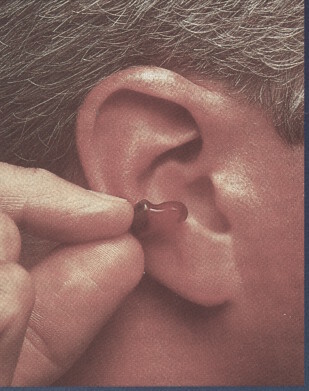Yesterday, on a FaceBook group devoted to Tinnitus, I read a heartbreaking post: “My tinnitus is really really bad. I’m leaving this world.”
My eyes immediately jumped to see how many comments were made in response and felt relieved. 147! I scanned through some of then:
“Hang in there, bro!”
“It will get better.”
“Get help. Cal your doctor now.”
“Try medication.”
“Try soft music in the background.”
“Focus on positive things.”
“I know it seems bad now, but it will get better with time.”
“IM (message) me now and we can chat!”
I don’t know what impact these offers of support had on the writer, but I was relieved. This was pure, loving support from strangers that I hope will help the person who posted to find his way forward.
Social media gets a bad rap these days.
We spend too much time on it. We accept what we read as truth, rather than getting our information from reputable sources. We ‘share’ (spread) conspiracies and lies that look like fact and are what we want to believe. We are able to vent our political and religious views, often anonymously in a way that mocks and badmouths those who believe differently. Anyone who spends any time on FaceBook, Twitter, Instagram or other social media platforms will agree with this.
But social media is also a positive force for change. Many of us – and when I say many, I mean gazillions – use social media to connect with people who have the same issues. I wrote recently about Brian Wallach, a man with ALS who is determined not to let the disease beat him, and his tweets are daily inspirations to thousands of people.
When I first went on social media, I was frantic over the fact that my hair was thinning and my once-beautiful eyelashes were no longer thick. Call me shallow if you want, but I found I wasn’t alone in my frustration and panic. People place immense value on having hair in the places they’re supposed to have it. Especially women. And when it starts to shed, it can be devastating. On FaceBook, I connected with a group of women who shared their frustrations and their thoughts on how to deal with it. It made me feel a lot better and I followed that group for a year; my hair is still thinning but maybe I’ve accepted it, or simply found something else to worry about.
It’s the same with hearing loss and tinnitus. There are many – scores, hundreds, thousands – 0f social media groups devoted to various aspects of living with communication challenges and invasive head noise. On any given day, you can pop into these sites and see that someone new has posted, asking for help, support, and ideas that will fix their problems.
Many of them ask technical questions. Some drop scathing comments on the cost of technology. Others cry over the lack of treatments for their tinnitus. And almost all of them receive responses from people who are on the same journey (or hamster wheel). These questions and answers become threads, conversations that share information, not only for the person who initially posted, but for themselves. And because we are human, the threads often contain sharp disagreements. Ultimately it’s up to the first person to extract the information that is useful for their situation.
But sometimes, the only expectation in joining these groups is to connect with people who understand them. As the writer Cheryl Strayed wrote in her book “Tiny, Beautiful Things”, “The healing power of even the most microscopic exchange with someone who knows in a flash precisely what you’re talking about because they experienced that thing too, cannot be overestimated.”
If you know of someone who is suffering from severe tinnitus or who needs help in dealing with their hearing loss, tell them to look up pertinent FaceBook and other social media ‘groups’. You might think, well doesn’t everybody do that?
No, they don’t. And I can guarantee you that people are waiting on these groups to provide support. I know I am.








Great post, Gael! We hear from a lot of tinnitus sufferers who are experiencing suicidal thoughts or ideation. To help them, we put together this article. We made sure to specifically address what a person in crisis can do RIGHT NOW to overcome suicidal thoughts.
https://www.healthyhearing.com/report/52989-Tinnitus-and-suicide